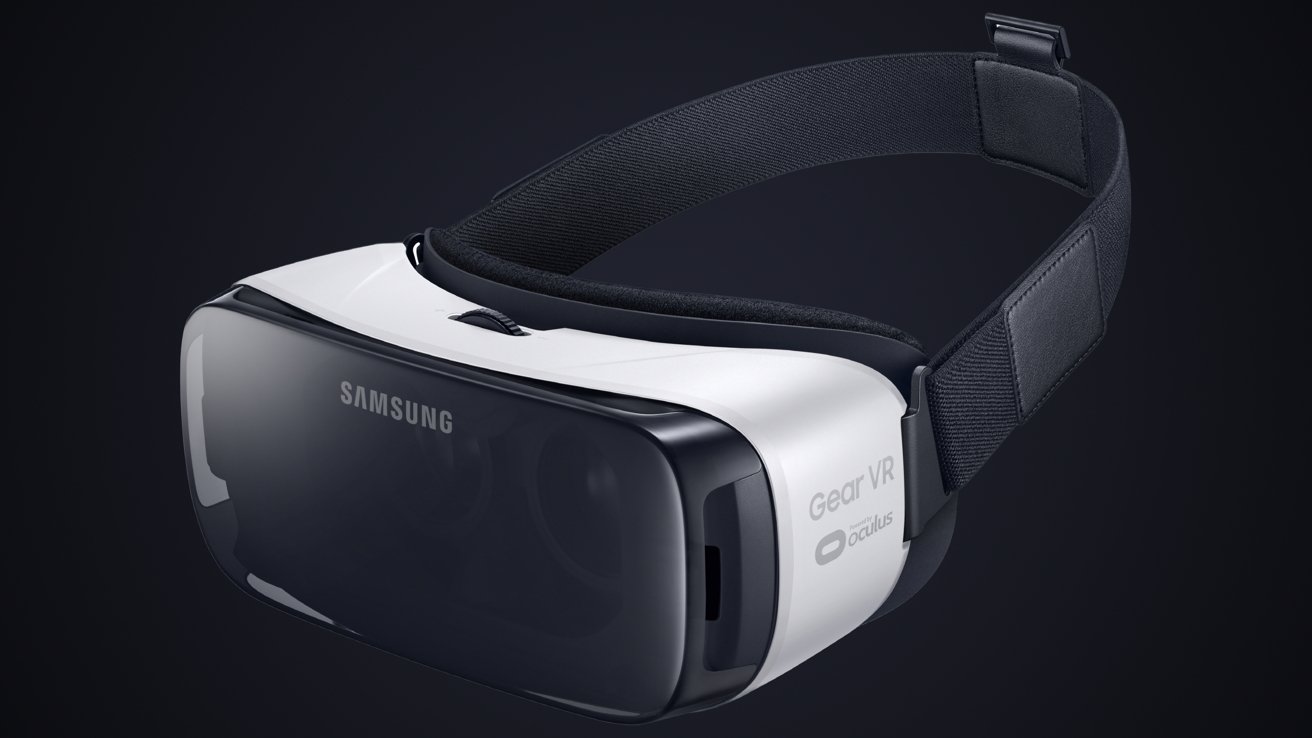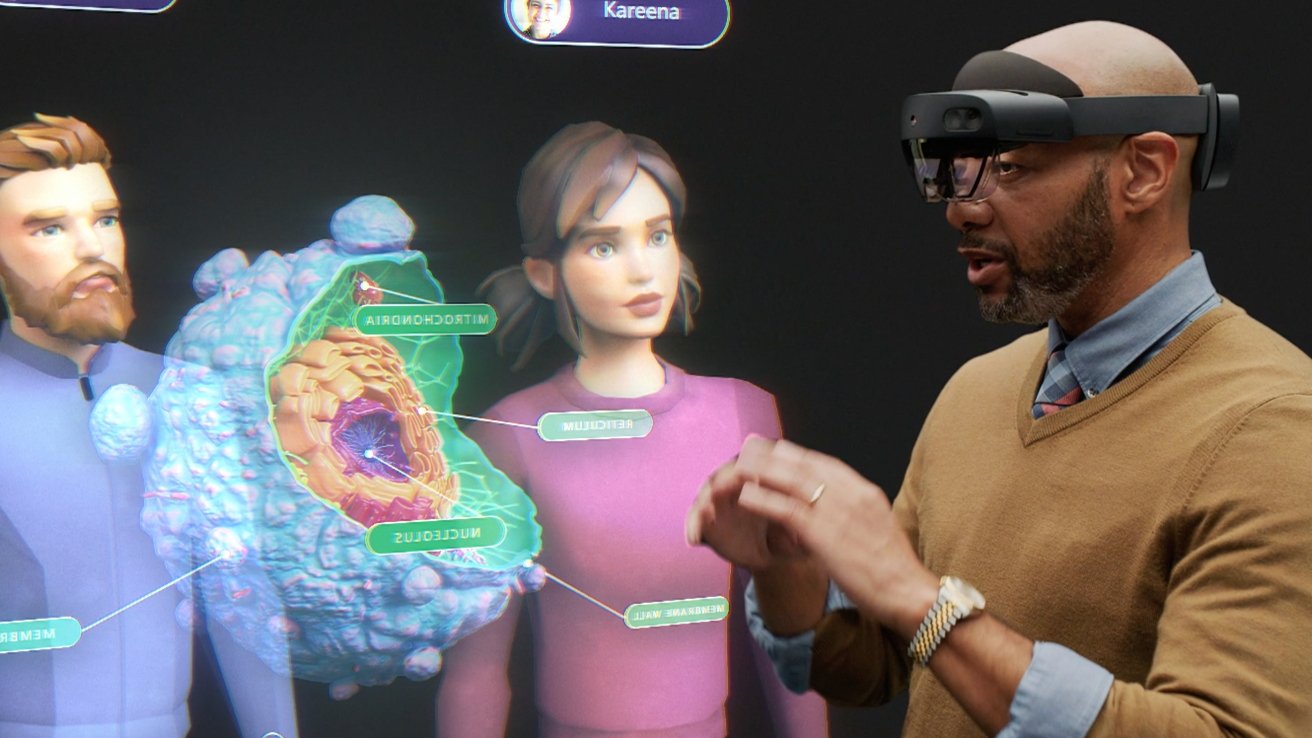Samsung partners with Google & Qualcomm for mixed reality
Samsung Gear VR may have been abandoned, but Samsung isn't out of the mixed reality game yet as it has entered a partnership with Qualcomm and Google for future products.

Samsung tried VR once before
Augmented reality, virtual reality, and mixed reality all fall under a single blanket term -- extended reality or XR. And Samsung has announced a new partnership with Qualcomm and Google to place a stake in the future of XR.
Samsung head of mobile experience, TM Roh sat down with Washington Post to detail Samsung's place in the future of extended reality. The company hopes to create new reasons to use wearable headsets that are driven by XR software.
Qualcomm would provide the chipset and Google would provide the software. Roh referenced a previously unannounced version of Android that was being developed for wearable displays.
"We believe that the ecosystem has to be somewhat ready for the product to be launched and for the product to be successful as well," Roh said. "And as you know, there have been many attempts by other companies so far, but not as successful as had been hoped because perhaps the ecosystem was not as ready as it should have been."
Anyone paying attention would know that the extended reality market is nothing new for Samsung. The company attempted to breach the market with the Gear VR headset in 2015, which required users to insert their smartphones.
After several iterations and even giving them away to customers with almost any Samsung purchase, the Gear VR failed to gain traction. Meta's announcement to commit to a VR future with the metaverse complicated things, driving Samsung to exit the market.
Google has tried and failed to introduce an augmented reality device before as well, called Google Glass. The eyesore wearable spooked the public as it pointed a giant camera at other people's faces -- earning Glass users the affectionate nickname "Glass-hole."
Despite these previous attempts and setbacks, Samsung seems to believe that now is the time to enter a partnership to drive XR forward. Competition in the space has struggled to gain traction, and massive layoffs in the tech sector highly targeted XR divisions.

Convincing people to strap a computer to their head is a difficult task
For example, Meta didn't quite achieve its goal of taking over the future of computing by strapping a headset on millions of users so they could live in Horizon Worlds. Microsoft has also stumbled in the space as it finally killed off the development of the HoloLens platform.
It also wouldn't hurt Samsung to find new revenue opportunities. It's most recent quarter turned out the worst profit in eight years.
Apple has been long rumored to be entering the XR game. The company has already had years of work put into an XR ecosystem with LiDAR-equipped iPhones and iPads. It is expected to reveal an Apple VR headset and eventually Apple Glass.
Samsung, Qualcomm, and Google are likely competitors for Apple's move into the space. Meta and Microsoft won't be left out either, as Samsung hopes to offer service partnerships to the companies.
Read on AppleInsider

Samsung tried VR once before
Augmented reality, virtual reality, and mixed reality all fall under a single blanket term -- extended reality or XR. And Samsung has announced a new partnership with Qualcomm and Google to place a stake in the future of XR.
Samsung head of mobile experience, TM Roh sat down with Washington Post to detail Samsung's place in the future of extended reality. The company hopes to create new reasons to use wearable headsets that are driven by XR software.
Qualcomm would provide the chipset and Google would provide the software. Roh referenced a previously unannounced version of Android that was being developed for wearable displays.
"We believe that the ecosystem has to be somewhat ready for the product to be launched and for the product to be successful as well," Roh said. "And as you know, there have been many attempts by other companies so far, but not as successful as had been hoped because perhaps the ecosystem was not as ready as it should have been."
Anyone paying attention would know that the extended reality market is nothing new for Samsung. The company attempted to breach the market with the Gear VR headset in 2015, which required users to insert their smartphones.
After several iterations and even giving them away to customers with almost any Samsung purchase, the Gear VR failed to gain traction. Meta's announcement to commit to a VR future with the metaverse complicated things, driving Samsung to exit the market.
Google has tried and failed to introduce an augmented reality device before as well, called Google Glass. The eyesore wearable spooked the public as it pointed a giant camera at other people's faces -- earning Glass users the affectionate nickname "Glass-hole."
Despite these previous attempts and setbacks, Samsung seems to believe that now is the time to enter a partnership to drive XR forward. Competition in the space has struggled to gain traction, and massive layoffs in the tech sector highly targeted XR divisions.

Convincing people to strap a computer to their head is a difficult task
For example, Meta didn't quite achieve its goal of taking over the future of computing by strapping a headset on millions of users so they could live in Horizon Worlds. Microsoft has also stumbled in the space as it finally killed off the development of the HoloLens platform.
It also wouldn't hurt Samsung to find new revenue opportunities. It's most recent quarter turned out the worst profit in eight years.
Apple has been long rumored to be entering the XR game. The company has already had years of work put into an XR ecosystem with LiDAR-equipped iPhones and iPads. It is expected to reveal an Apple VR headset and eventually Apple Glass.
Samsung, Qualcomm, and Google are likely competitors for Apple's move into the space. Meta and Microsoft won't be left out either, as Samsung hopes to offer service partnerships to the companies.
Read on AppleInsider

Comments
FWIW Glass has never been discontinued, just re-focused, (!) nor did it ever have a giant camera. But yes, it did get a cute internet tag. Glass-hole.
https://www.google.com/glass/start/
In the time since they've been planning and developing a consumer product, perhaps two, and waiting for the right time to announce it. There's no scrambling.
Once Apple clears the way by proclaiming it's now OK to have a camera on your face I suspect Google will be ready to release their consumer-oriented augmented reality product. Apple's may still be better overall. Or not. Even if not it will be more commercially successful, but it will be 2024 before a headset/glasses for "the rest of us" will come to market from either company and a better idea of how accepting the public will be.
And Apple has the advantage by being integrated in house and has shown prowess in the technical issues to make it a success.
Product Design
Efficiency in computing and graphics
AR-FaceID-Emoji-Prime Sense
Software and hardware integration
And now Media experience, including spectator sports
And almost forgot, a privacy forward stance, which I suspect will be important for some content (porn here, just being honest here about this use)
Yes the competition should be concerned.